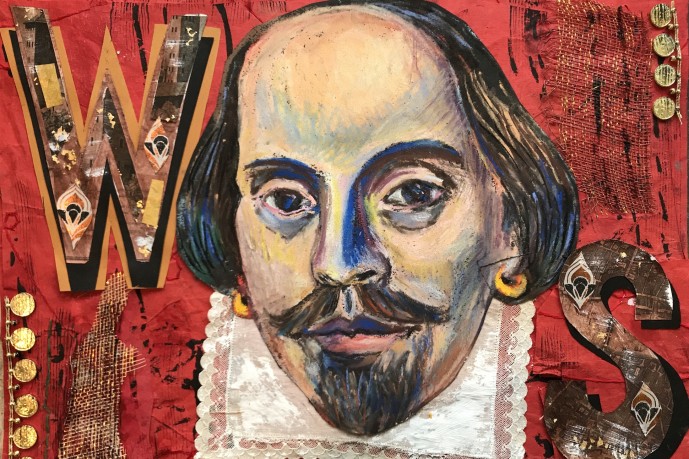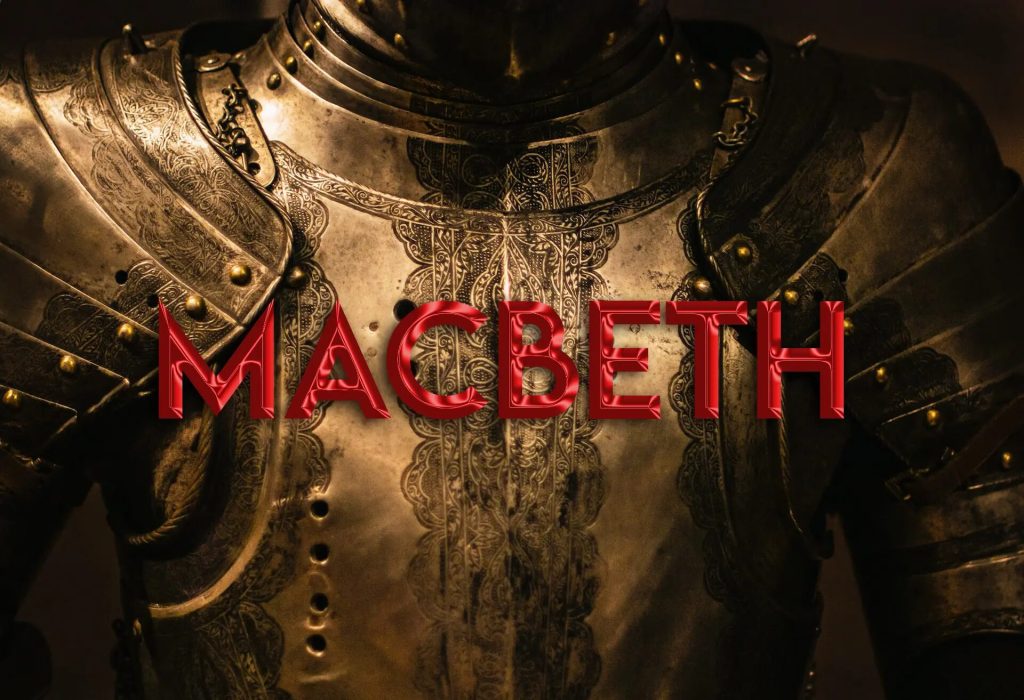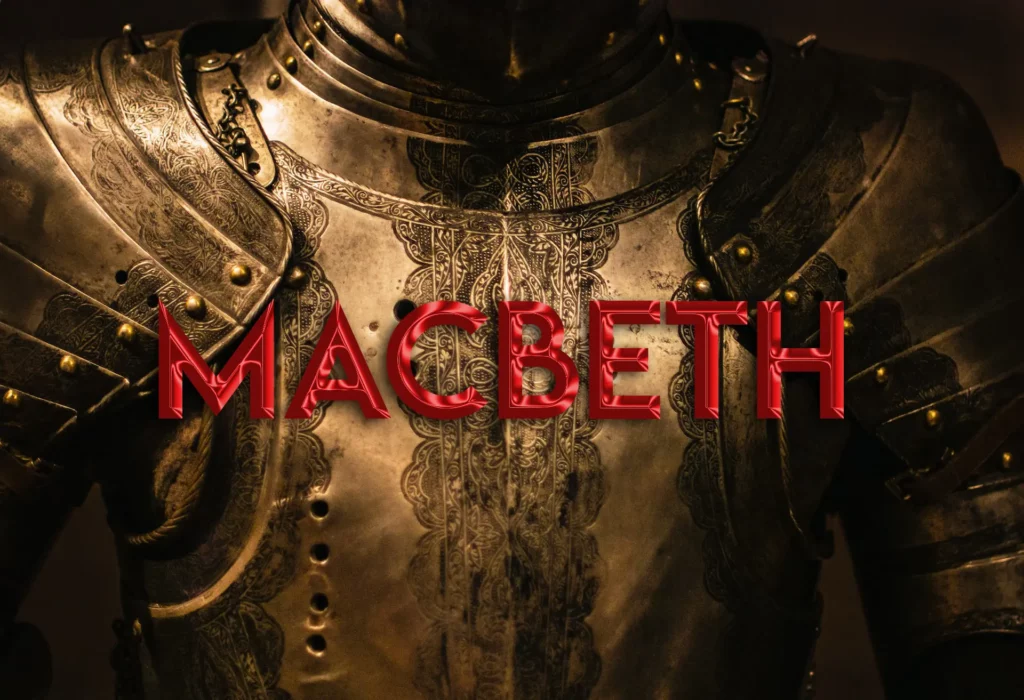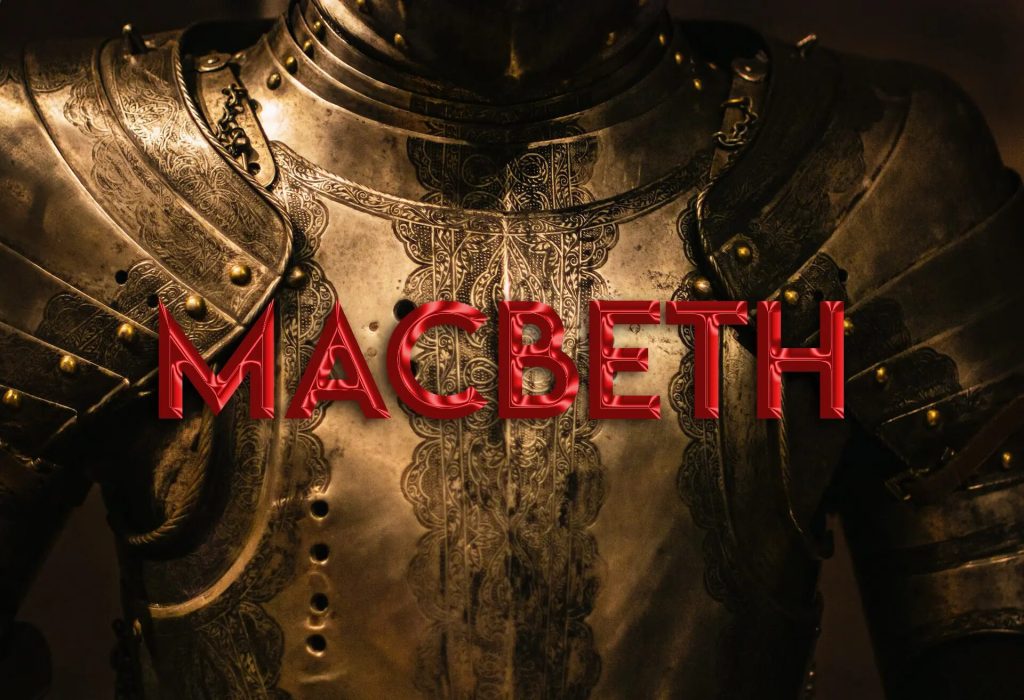
Tomorrow and tomorrow and tomorrow,
(Macbeth, Act V, Scene V)
Creeps in this petty pace from day to day,
To the last syllable of recorded time;
And all our yesterdays have lighted fools
The way to dusty death. Out, out, brief candle!
Life’s but a walking shadow, a poor player,
That struts and frets his hour upon the stage,
And then is heard no more. It is a tale
Told by an idiot, full of sound and fury,
Signifying nothing.
The “Tomorrow and Tomorrow and Tomorrow” soliloquy appears in Act V, Scene V of William Shakespeare’s play Macbeth. This soliloquy is one of the most famous speeches from William Shakespeare’s play Macbeth. It is spoken by Macbeth, who is reflecting on the futility and meaninglessness of life in the face of his own impending death. In this soliloquy, Macbeth’s despair and hopelessness are on full display, as he contemplates the fleeting nature of human existence. Let’s take a closer look at each line of the soliloquy and its significance.
Tomorrow and tomorrow and tomorrow,
Creeps in this petty pace from day to day,
To the last syllable of recorded time;
Macbeth begins by repeating the word “tomorrow” three times, emphasizing the endless, repetitive nature of time. He describes time as moving forward at a “petty pace,” or a slow and insignificant speed, from one day to the next. However, he also acknowledges that time will continue to move forward until the very end of recorded history.
And all our yesterdays have lighted fools
The way to dusty death. Out, out, brief candle!
Life’s but a walking shadow, a poor player,
That struts and frets his hour upon the stage,
And then is heard no more. It is a tale
Told by an idiot, full of sound and fury,
Signifying nothing.
In the next few lines, Macbeth reflects on the transience of human life. He describes the past as a series of “yesterdays” that have led countless people to their ultimate fate: “dusty death.” He then famously refers to life as an “out, out, brief candle,” comparing it to a candle that is quickly snuffed out. He goes on to describe life as a “walking shadow,” or something that is insubstantial and fleeting. He compares it to an actor who struts and frets on the stage for a brief moment before disappearing forever. He concludes by saying that life is like a meaningless tale told by an idiot, full of sound and fury but ultimately signifying nothing.
There are several significant themes in this soliloquy. One of the most important is the theme of mortality. Macbeth is acutely aware of his own impending death, and he is struggling to come to terms with it. He realizes that no matter what he does, he cannot escape his own mortality, and he is filled with despair and hopelessness.
Another important theme in this soliloquy is the theme of the meaninglessness of life. Macbeth believes that life is ultimately pointless and insignificant, and he sees himself and all other human beings as mere actors on a stage, playing out a meaningless tale. This reflects a common existentialist belief that life has no inherent meaning or purpose, and that human beings must create their own meaning in a meaningless universe.
The soliloquy is also notable for its use of metaphor and imagery. Macbeth compares time to a slow and petty pace, life to a brief candle, and human beings to actors on a stage. These metaphors and images are powerful and evocative, helping to convey Macbeth’s sense of despair and hopelessness.
In conclusion, the “Tomorrow and Tomorrow and Tomorrow” soliloquy is a powerful reflection on the futility and meaninglessness of human existence. Through its use of metaphor and imagery, it conveys the sense of despair and hopelessness that Macbeth feels in the face of his own mortality. It is a testament to Shakespeare’s ability to capture the human condition in all its complexity and nuance, and it continues to be a powerful and resonant piece of literature to this day.
*****
Read More: Macbeth by William Shakespeare




